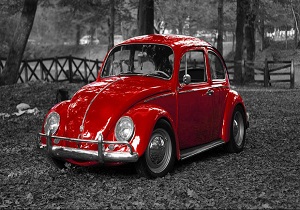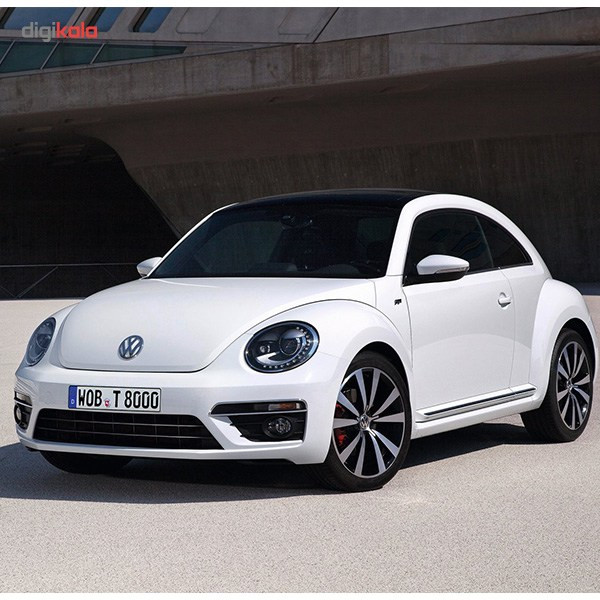Volkswagen is one of the famous German car manufacturers.Volkswagen, often abbreviated as VW, is one of the largest and most recognized car companies in the world. Here is some information about Volkswagen:
Volkswagen at a glance
Volkswagen was founded in 1937 by the German Labour Front and originally known as “Volkswagenwerk.” The company’s mission was to produce affordable and accessible cars for the German public. The iconic Volkswagen Beetle, designed by Ferdinand Porsche, was one of its early models and became a symbol of the brand.Volkswagen produces a wide range of vehicles, including compact cars, sedans, SUVs, and even luxury cars through its Audi brand. Some of the popular Volkswagen models include the Volkswagen Golf, Volkswagen Passat, Volkswagen Jetta, and the Volkswagen Tiguan.Volkswagen is a global company with a strong presence in many countries. It operates in various markets, with a significant focus on Europe, China, and North America. The company has manufacturing plants and sales outlets around the world.
Volkswagen has been making significant investments in electric vehicles (EVs) and sustainability. The company introduced the ID. series, a range of electric cars aimed at reducing carbon emissions. Volkswagen has also committed to becoming carbon-neutral by 2050 and promoting sustainability throughout its supply
Volkswagen Group is a conglomerate that includes several brands such as Audi, Porsche, Lamborghini, Bentley, and more. Each of these brands has its unique positioning and caters to different segments of the market.Volkswagen has a history of innovation, with a focus on safety and technology. The company has developed advanced driver assistance systems and is actively exploring autonomous driving technology.
Volkswagen faced a significant scandal in 2015 when it was revealed that the company had installed software in its diesel cars to manipulate emissions tests. This event, known as the “Dieselgate” scandal, led to legal and financial consequences for the company.

History of the Volkswagen automobile company:
The history of Volkswagen, often abbreviated as VW, is a fascinating journey that spans several decades. Here’s an overview of the company’s history:
Volkswagen was founded in the 1930s by the German Labour Front and was initially known as “Volkswagenwerk” or “The People’s Car Company.” The idea behind Volkswagen was to create an affordable and practical car for the German public, which at the time, didn’t have widespread access to automobiles. The project was initiated by Adolf Hitler, and Ferdinand Porsche was tasked with designing the first Volkswagen car.
The first Volkswagen car was the iconic Volkswagen Beetle, also known as the “Käfer” in German. The Beetle, with its distinctive rounded shape and rear-engine design, became a symbol of the brand. It was affordable, reliable, and easy to maintain. Production of the Beetle began in the late 1930s but was interrupted by World War II.
After World War II, Volkswagen’s factory in Wolfsburg, Germany, was under British control. Major Ivan Hirst, a British Army officer, played a crucial role in saving the factory and restarting production. The Beetle began to be exported, especially to the United States, where it gained popularity. By the late 1950s, Volkswagen had produced over a million Beetles.
In the 1960s, Volkswagen expanded its product range beyond the Beetle. The company introduced the Volkswagen Transporter (Type 2 or Microbus) and later the Volkswagen Karmann Ghia, the Volkswagen Type 3, and the Volkswagen Type 4.
In the 1960s and 1970s, Volkswagen acquired Audi, which marked the beginning of its expansion into a multi-brand group. Over the years, Volkswagen Group added several other brands to its portfolio, including Porsche, Lamborghini, Bentley, and others.
Volkswagen continued to grow and expanded its presence globally. The company introduced modern front-wheel-drive models like the Volkswagen Golf and Passat in the 1970s. These models played a significant role in the company’s success.
In 2015, Volkswagen faced a major scandal known as “Dieselgate.” It was revealed that Volkswagen had installed software in its diesel cars to manipulate emissions tests. This scandal led to significant legal and financial repercussions for the company.
In recent years, Volkswagen has made significant investments in electric vehicles (EVs). The company introduced the ID. series, a range of electric cars aimed at reducing carbon emissions. Volkswagen has committed to becoming carbon-neutral by 2050 and has made sustainability a central focus of its future endeavors.

Some of the models produced by the Volkswagen automobile company:
Volkswagen has a diverse lineup of models that cater to various segments of the automotive market. Here are some of the Volkswagen models:
- Volkswagen Golf: The Volkswagen Golf is one of the company’s most iconic and popular models. It’s available in various versions, including the standard Golf, Golf GTI (performance-oriented), and Golf R (high-performance with all-wheel drive).
- Volkswagen Passat: The Passat is a midsize sedan or wagon known for its spacious interior and comfortable ride.
- Volkswagen Jetta: The Jetta is a compact sedan known for its affordability and practicality.
- Volkswagen Tiguan: The Tiguan is a compact SUV that offers a good balance of size, features, and versatility.
- Volkswagen Atlas: The Atlas is a midsize SUV that provides ample space and is designed for families.
- Volkswagen Touareg (discontinued): The Touareg was a midsize luxury SUV, but it was discontinued in some markets.
- Volkswagen ID. Series: Volkswagen has introduced a range of electric vehicles under the “ID.” series, including models like the Volkswagen ID.3, ID.4, and more. These electric vehicles are part of Volkswagen’s efforts to transition to sustainable mobility.
- Volkswagen Arteon: The Arteon is a premium midsize sedan or fastback with a sleek and stylish design.
- Volkswagen Up!: The Up! is a small city car designed for urban driving.
- Volkswagen Amarok: The Amarok is a midsize pickup truck, although it may not be available in all markets.
Advantages and disadvantages of Volkswagen:
Advantages of Volkswagen:
- Quality and Engineering: Volkswagen is known for its quality and engineering. Their vehicles are typically well-built and have a reputation for durability.
- Variety of Models: Volkswagen offers a wide range of models, from compact cars to SUVs and even electric vehicles. This variety allows customers to choose a vehicle that suits their needs.
- Iconic Models: The Volkswagen Beetle and the Volkswagen Golf are iconic models that have left a significant mark in automotive history.
- German Engineering: Volkswagen benefits from the engineering prowess associated with German automakers. This often translates to good handling, performance, and safety features.
- Electric Vehicle Focus: Volkswagen has been investing heavily in electric vehicle technology. The ID. series of electric cars aims to make the company a leader in the EV market.
- Global Presence: Volkswagen has a strong global presence, making it accessible to customers in many countries.
Disadvantages of Volkswagen:
- Reliability Concerns: While Volkswagen’s build quality is generally good, some models have faced reliability issues. This can lead to higher maintenance and repair costs.
- Higher Price Tag: Volkswagen cars can be priced at a premium compared to some of their competitors in the same segments.
- Resale Value: Volkswagen cars may not hold their resale value as well as some other brands. This can lead to lower returns when you decide to sell your vehicle.
- Dieselgate Scandal: Volkswagen’s reputation was significantly tarnished by the “Dieselgate” scandal, where the company was found to have manipulated emissions test results. This has led to legal and financial consequences for the company.
- Complex Technology: Some of Volkswagen’s advanced technology features, including infotainment and safety systems, can be complex and may take time to learn and operate effectively.
- Competitive Market: The automotive market is highly competitive, and Volkswagen faces strong competition from other well-established automakers.
When considering a Volkswagen vehicle, it’s essential to research and test drive the specific model you’re interested in and consider factors such as reliability, pricing, and your personal preferences. Keep in mind that the advantages and disadvantages can vary from one model to another and depend on individual experiences and needs.
The story of the Volkswagen logo:
The Volkswagen logo, often referred to as the “VW” logo, has a simple yet intriguing history. The logo was designed in the early years of the company and has become one of the most recognized and iconic automotive logos in the world. Here is the story of the Volkswagen logo:
Designer and Origin: The Volkswagen logo was designed by Franz Xaver Reimspiess, an engineer with a background in aerodynamics. Reimspiess was an employee of Franz Porsche, who was instrumental in the development of the Volkswagen Beetle. Reimspiess’s primary role was to create the aerodynamic design for the Beetle.
Symbolism: The VW logo is very minimalistic and consists of two letters, “V” and “W,” intertwined. The “V” stands for “Volks,” which means “people” in German, and the “W” stands for “Wagen,” which means “car.” Therefore, the logo represents “Volkswagen” or “People’s Car.” This name aligns with the original concept of Volkswagen to create affordable and accessible cars for the general public.
Historical Context: The Volkswagen logo was created in the 1930s when the company was in its early stages. It was during this time that the Volkswagen Beetle was conceived as a car for the masses, as part of Adolf Hitler’s initiative to provide affordable automobiles to the German population. The logo was a reflection of the company’s mission to produce a car that ordinary people could afford.
Design Evolution: While the basic concept of the VW logo has remained unchanged, there have been minor alterations in its design over the years to refine its appearance and proportions. However, the core idea of the intertwined “V” and “W” letters has remained consistent.

Leave a Reply